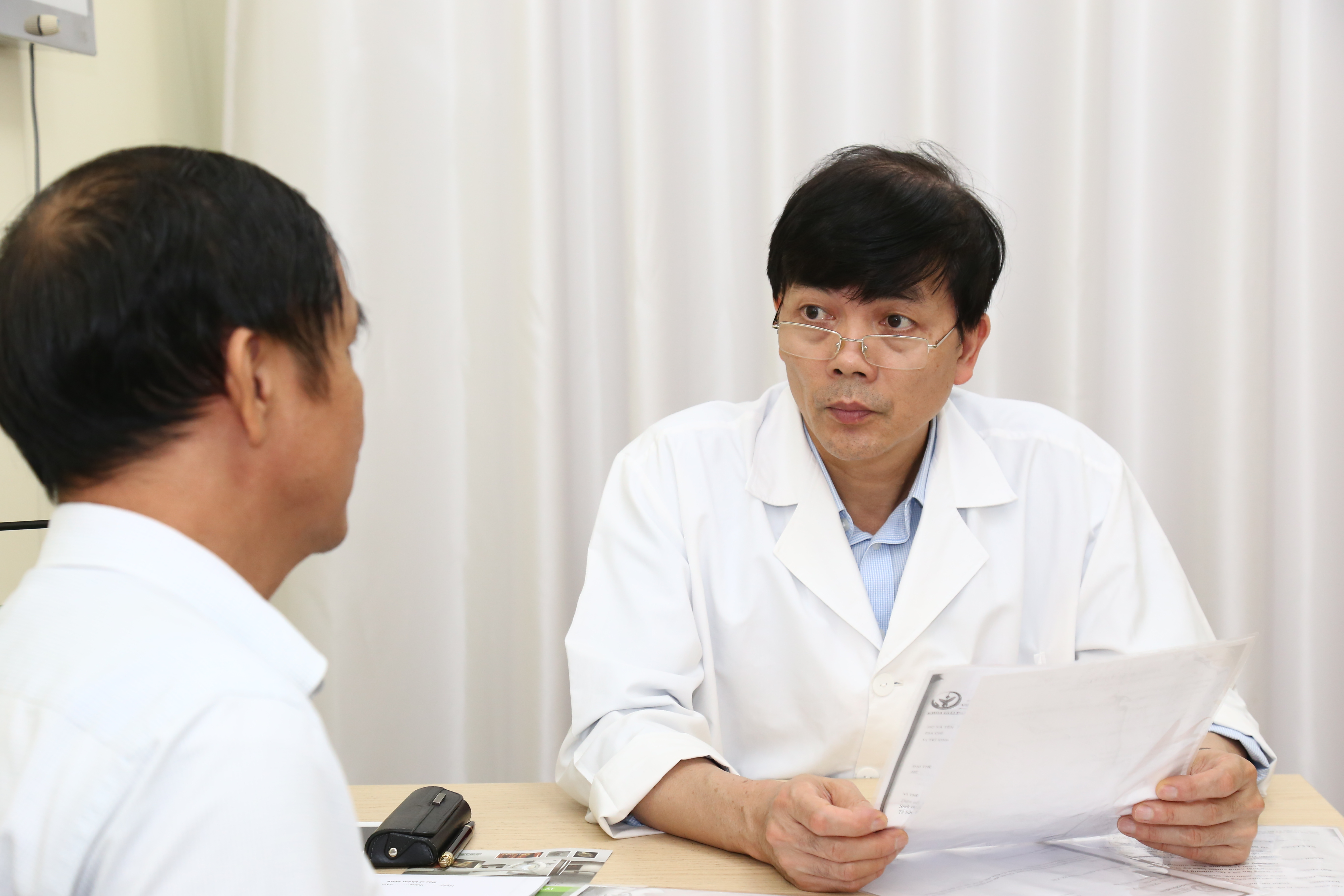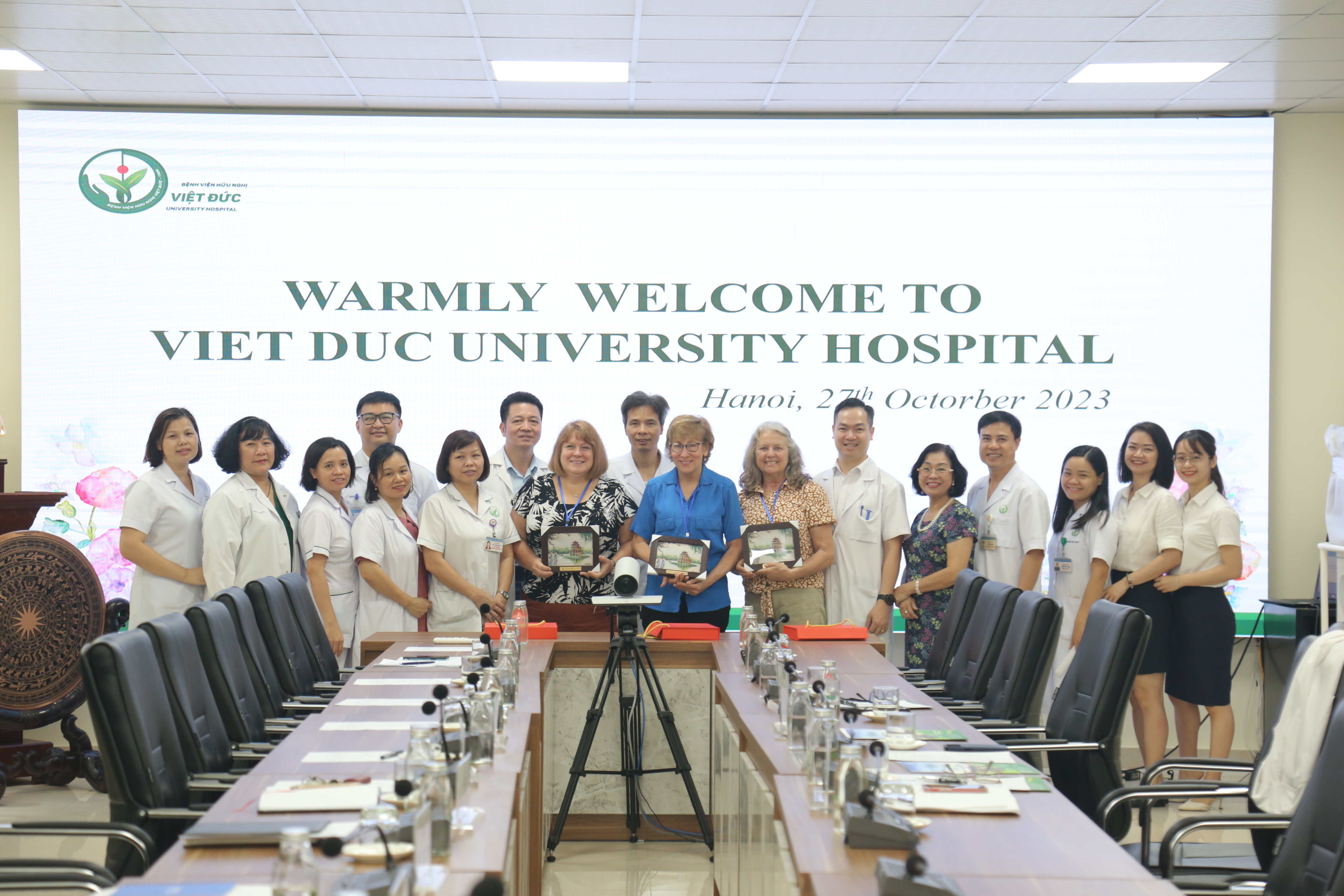More than half of the population has hemorrhoids
13/12/2019 10:41
Hemorrhoids are one of the most common diseases in the anus areas. More than half of the population has hemorrhoids, diagnosed usually after the age of 30. However, there are still many people who do not completely understand about it.
Hemorrhoids are usually described as varicose veins of the ano-rectal areas, then become enlarged due to congested venous blood or the laxity of the supporting system in the anal canal. Depending on the location of the hemorrhoids, they are divided into 2 types: external and internal hemorrhoids.
External hemorrhoids are outside the anal canal, develop just near the margin of anus and are covered with very sensitive skin of this areas. If a blood clot (thrombosis) is created, it will be very painful and become a stiff mass. External hemorrhoids can also be hemorrhagic if it was ruptured.
Internal hemorrhoids are inside the anal canal, are often painless. Hemorrhage or sticking out when defecation are common symptoms. However, it could be very painful if the internal hemorrhoids fully bulge outward from the anus and be unable to be pushed back. Internal hemorrhoids are divided into 4 grades. Grade I: hemorrhoids without prolapse; Grade II: hemorrhoids prolapse and automatically getting back inside after defecation; Grade III: hemorrhoids prolapse and must be pushed back intentionally; Grade IV: hemorrhoids prolapse and cannot be pushed back inside.

Assoc. Prof. NGUYEN Xuan Hung, Director of Colorectal Surgery and Proctology Center, Viet Duc University Hospital, is on consultation.
Assoc. Prof. NGUYEN Xuan Hung, Director of Colorectal Surgery and Proctology Center, Viet Duc University Hospital said that the exact cause of hemorrhoids has been currently unknown. However, people over 30 years old, chronic constipation or diarrhea, pregnancy are at the high risk. Hereditary factor is also a risk factor for hemorrhoids. Additionally, difficulty in defecating with forceful straining, poor intestinal function, laxatives or enema abuse also the causes of hemorrhoids.
If you have the following signs, you may have hemorrhoids: hematochezia, mass bulged out of the anus when defecation, itching of the anal area, pain, stiff masses presented near the anal margin.
Longtime hemorrhoids without appropriate treatment will lead to chronic anemia, weight loss, physical decline, embolism, hemorrhage and necrosis of hemorrhoids…
Answering the question whether hemorrhoids could become cancerous, Assoc. Prof. Dr. Nguyen Xuan Hung said: “The answer is NO. There is no relationship between hemorrhoids and cancer”. However, the symptoms of hemorrhoids, especially hematochezia, are similar to those for colorectal cancer and some other gastrointestinal diseases. Therefore, when having those symptoms, patients should be examined by colorectal and proctology specialists. In addition, people aging from 50 years-old should be screened for colorectal cancer.
Today, there are many treatments of choice for hemorrhoids that are effective and less painful, depending on the stage of the disease. If mild cases can be controlled by only adjusting to a high-fiber diet with vegetables, fruits, and lots of water (2-3 liters / day), by avoiding to increase the rectal pressure (forceful straining when defecation, staying too long in the toilet…). On the other hand, taking vasoconstrictive drugs and painkillers such as Daflon, Ginkofort, Proctolog…, soaking anus into warm water for about 10 minutes can reduce pain, swelling and bulged hemorrhoids.
With above mentioned managements, most symptoms of hemorrhoids such as edema, pain will reduce within 2 to 7 days. For thrombosis complication, it may take 4 to 6 weeks. In the case of a constantly painful, the doctor will remove the clot from the hemorrhoids. This procedure could be done in the clinic under local anesthesia and the patient will feel more comfortable, much less painful.
For complicated cases, patient should be treated with special procedures or surgery such as: ligation by rubber bands; sclerotherapy injection, LONGO procedure, devascularisation surgery, hanging surgery; typical hemorrhoids resection: Milligan-Morgan’s method with open wound or Ferguson’s method with sutures …
In order to help people to screen for hemorrhoids as well as colorectal – peri-neal areas diseases, Viet Duc University Hospital organized a program of free examination and consultation of colorectal – perineal diseases leading by experts in this issues.
Time: November 23th, 2019 (Saturday)
Venue: Clinic No. 03, 2nd Floor, Building C4, On-demand Clinic, Viet Duc Friendship Hospital.
For free examination and consultation, please register directly via the Toll Center 19001902











